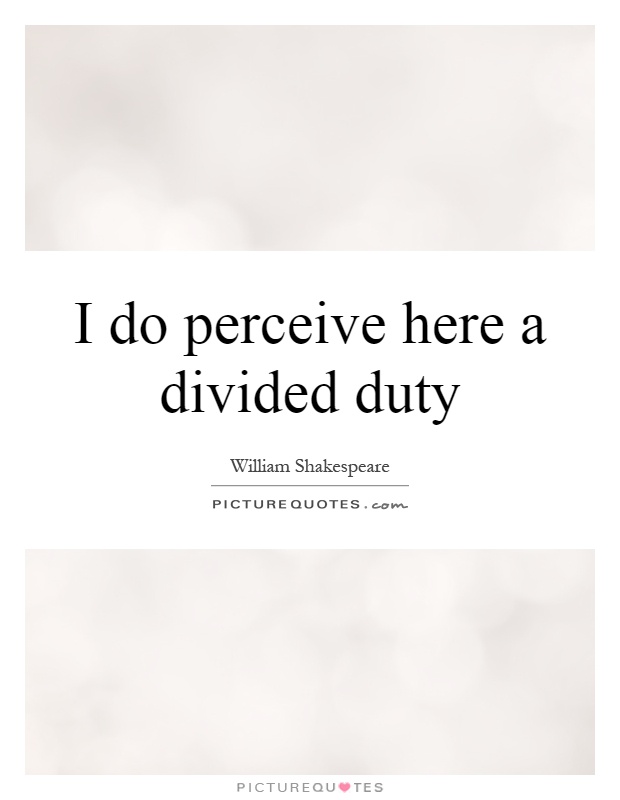I do perceive here a divided duty

I do perceive here a divided duty
In William Shakespeare's play, "Hamlet," the character of Hamlet famously declares, "I do perceive here a divided duty." This line encapsulates the internal conflict that Hamlet faces throughout the play, as he grapples with the conflicting demands of his duty to avenge his father's murder and his moral conscience.Hamlet's divided duty arises from the ghost of his father, who reveals to him that he was murdered by his own brother, Claudius, who has since married Hamlet's mother and taken the throne. Hamlet is torn between his duty to avenge his father's death and his moral qualms about committing murder. He struggles with the weight of this decision, as he contemplates the consequences of his actions and the impact they will have on his own soul.
Throughout the play, Hamlet vacillates between action and inaction, as he grapples with his divided duty. He is consumed by doubt and indecision, as he questions his own motives and the nature of justice. Hamlet's famous soliloquy, "To be or not to be," reflects his inner turmoil as he contemplates the futility of life and the moral implications of his actions.
Hamlet's divided duty also extends to his relationships with those around him. He is torn between his loyalty to his father and his love for his mother, who has betrayed him by marrying his father's murderer. He struggles with his feelings for Ophelia, whom he loves but ultimately rejects in his quest for revenge. Hamlet's divided duty creates a sense of isolation and alienation, as he becomes increasingly isolated from those around him.
Ultimately, Hamlet's divided duty leads to his tragic downfall. His indecision and moral ambiguity result in a series of tragic events that culminate in his own death. Hamlet's story serves as a cautionary tale about the dangers of being torn between conflicting duties and the consequences of failing to act decisively.












 Friendship Quotes
Friendship Quotes Love Quotes
Love Quotes Life Quotes
Life Quotes Funny Quotes
Funny Quotes Motivational Quotes
Motivational Quotes Inspirational Quotes
Inspirational Quotes